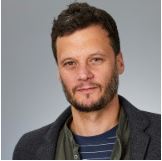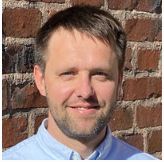Three SEED researchers have received the Formas Career Grant for Early-career Researchers

Three young researchers from Department of Sustainable Development, Environmental Science and Engineering (SEED) have received the Formas Career Grant for Early-career Researchers. The funded researchers are Rebecka Ericsdotter Engström, Joseph Mulligan and Oleksii Pasichnyi.
The grant gives funding to individual research projects, where the researcher formulate his or her own research question, within Formas’ areas of responsibility: Environment, Agricultural Sciences, and Spatial Planning.
More about the funded projects:

”Systemic Risk Assessment for Resilient Urban Decarbonisation - How can deep uncertainty and systemic risk be incorporated in efforts to accelerate towards climate neutral cities?”
Rebecka Ericsdotter Engström, Postdoc SEED
Cities stand at the frontline of the climate challenge. Significantly reducing greenhouse gas emissions while adapting to the effects of climate change requires robust strategies that take into account complex interrelationships and deep uncertainties. In this project, methods from the family of systemic risk analysis (SRA) are developed to identify and manage systemic risk associated to cities' decarbonisation efforts.
The project focuses on the overarching questions:
How can SRA support city decision-makers to build resilience into their climate mitigation measures?
By doing so the project will also explores how adding a systemic risk perspective to the climate mitigation work in cities can contribute to integrating cities' mitigation and adaptation agendas. Through case studies in Umeå and Madrid, two cities with ambitious climate neutrality goals, the project explores, in collaboration with city actors, how SRA can be used to navigate risks in the cities' climate mitigation efforts. By developing a systemic risk atlas for climate-neutral cities, the project results and learnings can be disseminated to other cities through the networks for climate-neutral cities that the project collaborates with - Viable Cities in Sweden, CitiES2030 in Spain – and through associated European networks.
The project's goal is to provide valuable new knowledge and tools to cities that can help them strengthen the viability of their climate neutrality strategies in a deeply uncertain future.

”Participatory Modelling in Practice: Equitable adaptation planning for river and desert communities living under extreme climate risk”
Joseph (Joe) Mulligan, Affiliated faculty SEED
How we adapt to climate change extremes in vulnerable urban settlements will shape the future of cities. A fundamental principle of achieving equitable adaptation is the mobilisation of local knowledge. Researchers have investigated Participatory Modelling as an approach to share knowledge between technical and non-technical stakeholders to improve equitable adaptation planning. However, whether and how Participatory Modelling changes modelling or planning outcomes in real-world projects is largely unknown.
This project addresses this knowledge gap. As both practitioner and researcher, I will conduct a systemic inquiry into four planning and modelling projects in extreme heat and flood-exposed settlements of East Africa and North America. Within each project I will address four key questions: i) when and how does participation happen in the modelling process? ii) does it influence the process? iii) does it change the outputs? and iv) does it matter to the wider planning process? I will assemble a rich qualitative and quantitative record of the process, engaging with respondents from modelling, civil society, and government to establish linkages between process, decisions, and spatial and social outcomes. These data will allow me to observe and identify whether a redistribution of relations and expertise takes place. The results, from the frontiers of climate action, will inform new science-driven methods for planning and engineering practice worldwide.

”Data analytics for energy efficient and climate neutral cities”
Oleksii Pasichnyi, researcher SEED
This research project addresses the urgent need for climate action focusing on cities and buildings. It aims to advance understanding of how urban building energy data can be used to upscale sustainable transitions in cities.
This will be explored through the following objectives:
- Advance the energy simulation of buildings on a large (district, urban, national) scale.
- Enhance data representation of the built environment on the urban scale.
- Develop and pilot new decision-support tools energy and sustainable transitions in different urban contexts with various types of stakeholders.
- Synthesise and communicate the existing practices of data-driven decision-making for energy efficiency and climate action planning in the selected cities.
Building on the existing ODEN urban energy data platform, the project leverages the emergence of big data and AI/ML technologies to improve the accuracy of energy performance predictions, facilitate the segmentation of building stocks for targeted interventions, and support the decision-making process with actionable insights.
Three research visits to the leading research environments at National University of Singapore, New York University and Technical University of Madrid will contribute to the establishment of a research network and further development of AI/ML toolbox. The project will contribute to accelerating the energy efficiency improvement of the building stock, decarbonizing urban energy systems, and achieving climate neutrality in cities.
